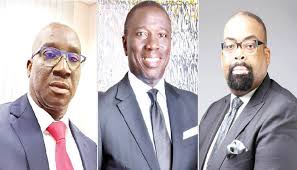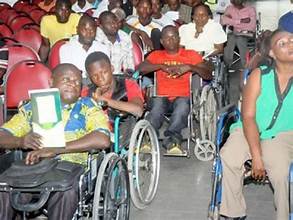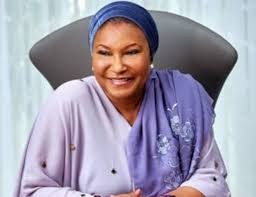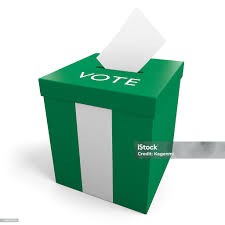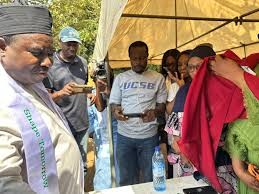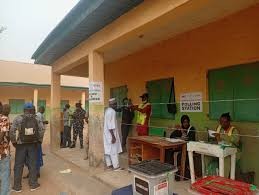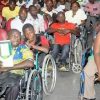Despite the intense politicking and jamborees that overwhelmed the state before the just concluded Edo state off-cycle governorship election, the election ended up recording an abysmally low voter turnout. This has led many analysts to ponder the reasons responsible for this. The election, which took place on Saturday, September 21, 2024, saw the All Progressives
Despite the intense politicking and jamborees that overwhelmed the state before the just concluded Edo state off-cycle governorship election, the election ended up recording an abysmally low voter turnout. This has led many analysts to ponder the reasons responsible for this.
The election, which took place on Saturday, September 21, 2024, saw the All Progressives Congress (APC) candidate, Senator Monday Okpebholo, emerge as the winner of the state election with 291, 667 votes, ahead of his counterparts, the Peoples Democratic Party candidate, Asue Ighodalo, who polled 247, 274 votes, and Olumide Akpata of the Labour Party, who came in third with 22,763 votes.
The Independent National Electoral Commission recorded in their portal that 2,249,780 voters in Edo State collected their Permanent Voters Cards (PVCs) for the election out of the 2,629,025 registered voters. While APC, PDP, and LP got 561,704 out of the total 583, 965 votes cast at the poll, other political parties shared the remaining 78, 179 votes.
APC PDP LP Other Parties Total
291,667 247,274 22,763 22,261 583,965
Further analysis also shows that out of 22% of the 2,629,025 registered voters in the state cast their votes at the polling units, indicating a low turnout on election day. On a similar note, the statistics show that only 24% of those who collected their Permanent voter cards voted in the election.
Although, some people have blamed the heavy downpour on the day of the election as the reason for the low turnout at the election. The figures have shown that the election recorded the lowest voter turnout in the state in the state since 2016. The turnout of the 2016 polls was 32.7%, as 622,029 votes were cast out of 1,900,223 registered voters. In 2020, 24.9, or approximately 25%, was recorded, in which 550, 242 people voted out of 2,210534 total registered voters.
YEARS Total Reg. voters Total votes Cast Percentage%
2016 1,900,223 622,029 32.7%
2020 2,210,534 550,242 24.9 or 25%
2024 2,629,025 583,965 22%
Breakdown of Edo State Election Since 2016
Fear of Violence and Voters’ Turnout
There were some other indications that the low turnout could have been because of pre-emptive violence, which stirred fear out of the electorates to go to the polling unit and exercise their franchise accordingly. The percentage of participation in the state has continued to decline since 2020, and one thing the 2020 and 2024 elections have in common is that both polls were predicted to be violent.
Disenchantment with the Options of Candidates
There was another group of persons who were not persuaded to come out and exercise their franchise because they were not pleased with the options of the candidates on parade. They reasoned that the candidates were being used to fight a proxy war of the godfathers. Specifically, they said former governor now Senator Oshiomole who campaigned vehemently for Monday Okpebholo of the APC had a score to settle with Governor Obaseki who took to the podium campaigning vigorously for Mr. Asue Ighodalo of the PDP. They reckoned that the two would emerge a winner and for them, Olumide Akpata did not stand a chance.
Was it Another Indication of Trust Deficit in the INEC?
Many voters smarting from the outcome of the 2023 general elections vowed never to participate in any election again in Nigeria. The outcome of the electioneering process and people’s turnout at the poll could yet be an indication of the trust deficit in Nigeria’s democracy and the electoral umpire, the Independent National Electoral Commission, and its ability to deliver a credible free and fair election to Nigerians.
The various controversies that have greeted the outcome of the election and the comments by independent observers and civil society organisations that the election failed the integrity test and credibility further buttress the argument for voter apathy witnessed in the Edo governorship election.
Speaking on the level of low voter turnout in the state election, Israel Adebiyi, the Head of News and Current Affair, Super FM in Benin City who was on the field to observe the process in some local government areas of the state said voter apathy was the highlight of the election as the electorates have lost confidence in the electoral commission to conduct an election that will reflect their desire.
He added that the other people who were out to vote did so to transact their votes with the highest bidder as vote buying later dominated mostly the rural parts of the state.
“One of the issues that I observed that occurred in the Edo state election is the issue of confidence, and the reflection of trust deficit the electorates have in the government institutions to have a credible process when it comes to the issue of election. It should, however, be noted that the crisis of trust deficit did not start in the Edo election, the apathy was borne out of what happened in the 2023 election when most people felt like the outcome of the election did not reflect their choices and that made people despondent at the level of election.
“Interestingly those who even came to vote saw their votes as merchandise who came to transact their votes for money and the highest bidder eventually had the day. Those who came early regretted doing that because the selling and buying of votes began quite later in the day”.
Another journalist, Eniola Olurankinse, Deputy Head of News, Crest 106.1Fm, Akure who covered Akoko Edo local government during the poll explained that the voter apathy in the state was because of previous disappointing outings of the electoral commission in the country which has become the expected narrative of all Nigerians.
He called for voters’ education and more commitment from the electoral body to convince Nigerians and regain their trust “I believe lacklustre interest in the electoral process can be attributed to various factors which include years of broken promises, electoral malpractices, and unaddressed grievances which have eroded public trust.
“The pervasive sense of disenfranchisement and powerlessness has also led many citizens to question the efficacy of their votes. However, that may not be the case in Edo state, because the election had earlier witnessed a significant massive turnout just before the process was greeted by a heavy downpour that lasted for several hours. As much as we can’t blame nature, it is important to note that Nigeria lags woefully behind in voter education. Politicians and parties invest considerable resources in campaigns but neglect civic engagement.
“It is crucial that they prioritise voter education, mirroring the intensity of their house-to-house campaigns as channelling equal energy into voter education would foster a more informed electorate and reverse this trend as Nigeria requires comprehensive electoral reforms.
“The Independent National Electoral Commission should also play a vital role in promoting voter education and civic engagement. INEC’s efforts to register new voters and validate biometric details are commendable. However, more needs to be done to address the root causes of voter apathy”.
Kunle Daramola, a journalist with TheCable Newspaper in Lagos who travelled to Edo state shared a different experience as to low voters’ apathy in the just concluded election. “According to him, the voters in the city were participating and that speaks to the results recorded from Oredo local government, where he covered. “I monitored the election in Benin City, Oredo and I can say the voters came out in their numbers.
“Despite the rain, voters came to perform their right. However, there was low voter turnout in some polling units across Benin City. Some polling units were scanty, but major wards of the major stakeholders, particularly Olumide Akpata and GovernorObaseki, were well attended by voters”.

